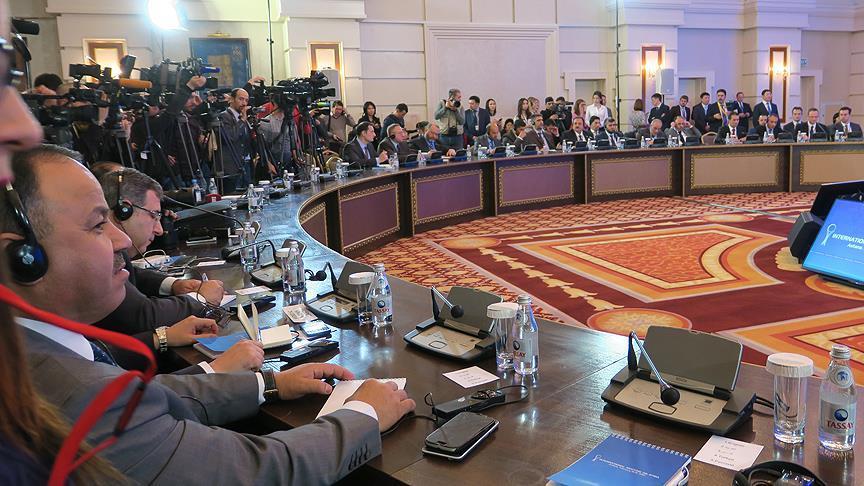 FILE PHOTO
FILE PHOTO
By Diyar Guldogan, Selen Temizer, Aliia Raimbekova and Muhammed Shekh Yusuf
ANKARA
Turkey, Russia and Iran will establish a joint working group on de-escalation zones in Syria, Kazakhstan's foreign minister said Wednesday.
Kairat Abdrakhmanov's remarks came during a news conference following the final day of the fifth round of Syria peace talks in the Kazakh capital, Astana.
Reading a joint statement from the three guarantor countries, Abdrakhmanov said the trio expressed their satisfaction with the progress in the delineation of the de-escalation areas in the war-stricken country, agreed to at the previous round of Astana talks on May 4.
"They instructed the Joint Working Group to finalize the operational and technical modalities of all de-escalation areas," Abdrakhmanov said, adding the next meeting of the group would be held in Iran on Aug. 1 and 2.
Turkey, Russia and Iran emphasized "the need for all parties in Syria to take confidence-building measures to contribute to the viability of political process and lasting ceasefire," the Kazakh minister said.
The trio also stressed the need to ensure "rapid, safe and unhindered" humanitarian access to areas affected by the ongoing conflict, he said, adding the sixth round of Astana talks would be held during the last week of August.
Issues remain on southern zones
Alexander Lavrentiev, Russia’s special envoy for Syria, told reporters that negotiators had agreed on seven documents, but still need to work on them.
"After we receive the approval of the joint working group, we will sign the documents," he said.
Lavrentiev said U.S. and Jordanian participation is necessary to create de-escalation zones in southern Syria.
On Tuesday, Lavrentiev told reporters an agreement had been reached on two of four de-escalation zones but added issues remain on the southern region, which borders Jordan.
Stuart Jones, acting U.S. assistant secretary of state, told opposition groups it had been agreed with Russia and Jordan to set up a security zone in southern Syria.
Lavrentiev said Russian military police will be deployed in the de-escalation and buffer zones, adding that they will carry light weapons.
UN Special Representative for Syria Staffan de Mistura called the zones temporary measure, adding that political progress is needed.
Following a Dec. 30 cease-fire, the first round of Astana talks was held on Jan. 23-24, brokered by Turkey -- which backs the opposition -- and Russia and Iran, which support the Bashar al-Assad regime.
Syria has been locked in a vicious civil war since early 2011, when the Assad regime cracked down on pro-democracy protests. Since then, more than 250,000 people have been killed and in excess of 10 million displaced, according to the UN.








